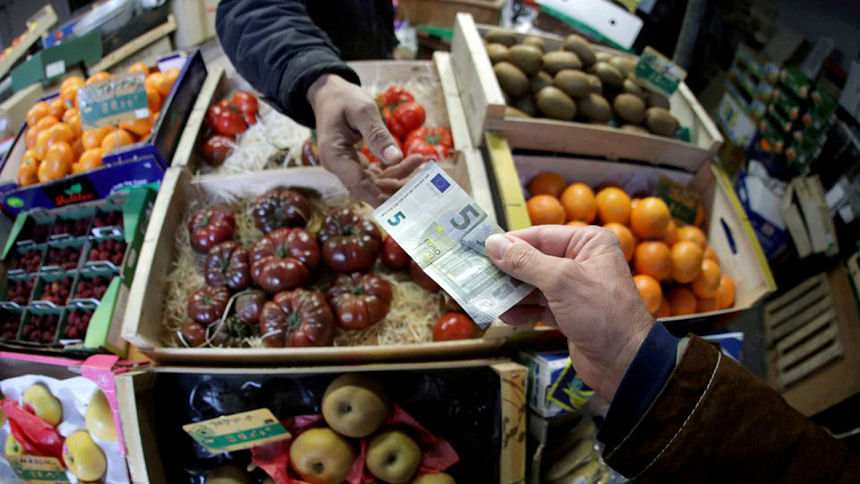Euro zone inflation hits record high

Euro zone inflation rose to a new record high last month, defying expectations for a big drop and adding to already copious doubts that price pressures are as benign and temporary as the European Central Bank still expects.
Inflation in the 19-country euro zone accelerated to 5.1 per cent in January from 5 per cent in December, well ahead of expectations for a drop to 4.4 per cent, the European Union's statistics agency Eurostat said on Wednesday.
Soaring energy prices continued to drive inflation but food prices also surged, while services and industrial goods inflation remained uncomfortably high.
At 5.1 per cent, price growth is more than twice the ECB's 2 per cent target but the central bank, which holds a policy meeting on Thursday, has for months shrugged off the data, arguing that temporary factors are behind the rise and inflation will abate on its own.
But the ECB's track record in forecasting inflation is mixed and it was forced several times last year to sharply raise its projections.
While the US Federal Reserve has abandoned the narrative that inflation is "transitory," the ECB has stuck with this assessment, arguing that wage growth, a precondition of durable inflation, is still muted and underlying price growth is weak.
Although core inflation slowed, it remained above the ECB's target and also beat market expectations by a wide margin.
Inflation excluding food and fuel prices, closely watched by the ECB, slowed to 2.5 per cent from 2.7 per cent while a narrower measure that also excludes alcohol and tobacco products slowed to 2.3 per cent from 2.6 per cent.
Both figures were well above expectations.

 For all latest news, follow The Daily Star's Google News channel.
For all latest news, follow The Daily Star's Google News channel. 



Comments